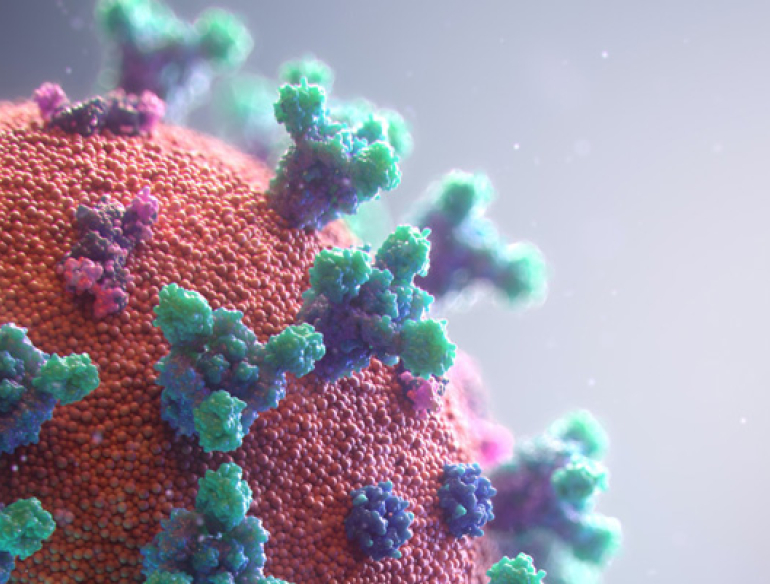The Australian Government’s Medical Research Future Fund (MRFF) has awarded a combined almost $2 million to two Kirby Institute projects; one into the transmission of COVID-19, and another into an innovative antiviral treatment.
Professor Raina MacIntyre was awarded $993,000 to lead a collaborative team from UNSW Medicine & Health and UNSW Engineering who are working to uncover new insights into the aerosol transmission of COVID-19, especially in healthcare settings. Using a three-stage, multidisciplinary study design – real-world, experimental and airflow modelling – the researchers will contribute internationally novel data, correlated to specific procedures, practices and Australian hospitals.
“SARS-CoV-2 transmission is complex and determined by host, pathogen, airflow, building design, environmental and behavioural factors. Understanding SARS-COV-2 transmission therefore needs multi-disciplinary collaboration between health, engineering, microbiology and aerosol experts,” says Prof. MacIntyre. “We will use a real-world ICU setting, aerosol flow dynamics and mouse coronavirus experiments to develop and validate a model of SARS-CoV-2 transmission. This will be a great leap forward in helping mitigate transmission in this high-risk setting and provide the basis to better protect healthcare workers and vulnerable patients.”
Other investigators on the study include Professor Mark Willcox from UNSW Medicine & Health, Professor Con Doolan, Dr Charitha de Silva from UNSW Engineering, Associate Professor Stuart Turville from the Kirby Institute, and colleagues from St Vincent’s Hospital Sydney and Nepean Hospital.
Professor Anthony Kelleher and Dr Chantelle Ahlenstiel from the Kirby Institute were awarded $998,000 to lead a multi-institutional team on the development of direct-acting antiviral RNA therapeutics to prevent and treat COVID-19 infection. The antiviral RNA will be delivered by inhaling nanoparticles that carry the therapeutic directly to targeted respiratory sites, providing an important tool for COVID-19 treatment and to prepare for emerging pandemics.
“There is an urgent need for more antiviral treatments for COVID-19 infection due to evolving vaccine resistance and lack of adequate immune responses, especially in people with impaired immune function,” says Dr Ahlenstiel. “Vaccination relies on an immune system response, but in people who are immunocompromised or immunosuppressed, this response is impaired. The siRNA treatment we are developing will fill this critical gap not only to treat SARS-CoV-2, but other coronaviruses too, and this project will provide pre-clinical data for accelerated translation to human proof of concept clinical trials. We’re excited to work with a world class team to achieve this outcome.”
Other investigators on the project are Associate Professors Kathy Petoumenos and Stuart Turville from the Kirby Institute, Professor Pall Thordarson from UNSW Science and RNA Institute, Professor Maria Kavallaris from UNSW Medicine & Health and the Children’s Cancer Institute, and colleagues from UTS, University of Newcastle, Macquarie University, and University of Amsterdam.
Header Image
Image credit: Unsplash
